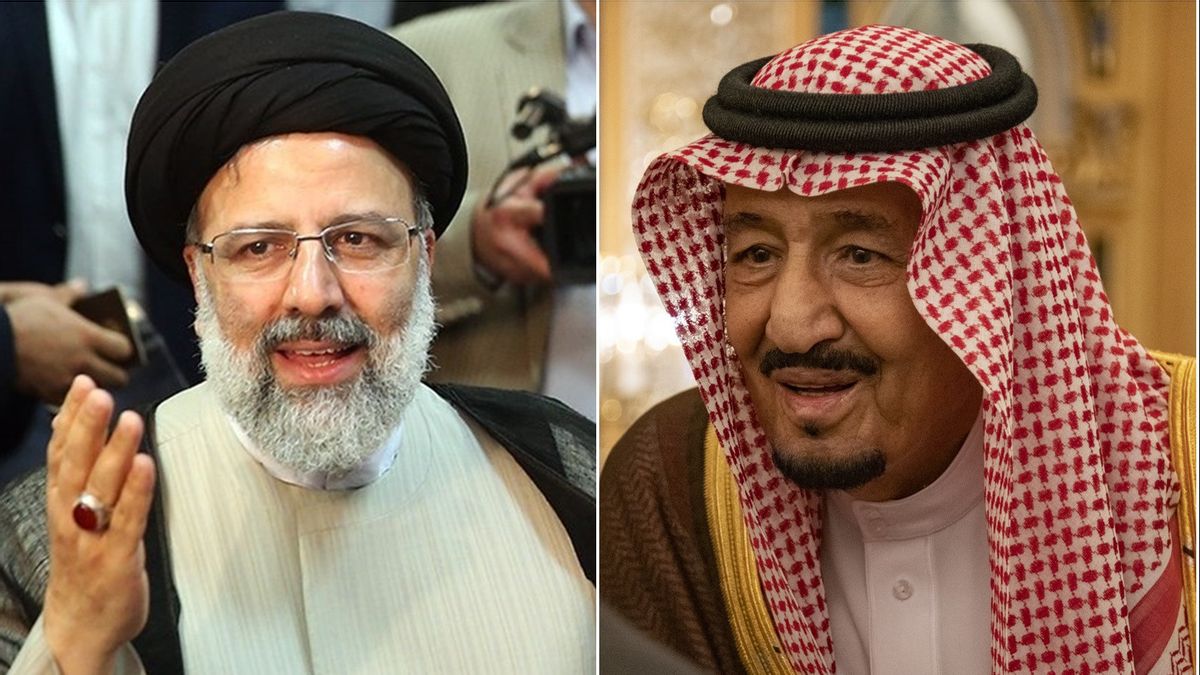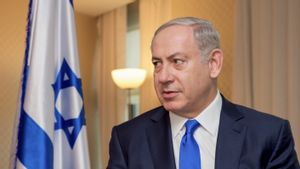JAKARTA - Iranian President Ebrahim Raisi accepted an invitation from Saudi Arabia's King Salman to visit the kingdom, following a reconciliation deal between the two countries, an Iranian official said.
"In a letter to President Raisi... The King of Saudi Arabia welcomes this agreement between the two brother nations (and) invites him to Riyadh," wrote Mohammad Jamshidi, deputy chief of staff of the Iranian president for political affairs, adding to Sunday's message, " President Raisi welcomed the invitation," reported by Al Jazeera, March 20.
The two influential countries in the region announced on March 10 a deal to restore relations seven years after their break, which was brokered by China.
Riyadh severed ties after Iranian protesters attacked Saudi Arabia's diplomatic mission in 2016, following the Saudi execution of Shia cleric Nimr al-Nimr, one of a series of flashpoints between the two long feuding regional rivals.
The deal is expected to allow Shia-majority Iran and Sunni-majority Saudi Arabia to reopen their embassies and offices within two months, implementing a security and economic cooperation agreement signed more than 20 years ago.
Separately, Iranian Foreign Minister Hossein Amir-Abdollahian said on Sunday, the two countries had agreed to hold a meeting between their top diplomats. He added that three locations for the talks had been proposed, without specifying where.

Amir-Abdollahian stressed "that the two countries exchanged technical teams to inspect the embassies in Tehran and Riyadh and see if they are ready for both missions to be sent there".
A detente between Saudi Arabia, the world's biggest oil exporter, and Iran, which is deeply at odds with Western governments over its nuclear activities, has the potential to reshape ties across a region marked by decades of turmoil.
Iran and Saudi Arabia support opposing sides in several conflict zones, including Yemen, where Houthi rebels are allied with Tehran and where a military coalition backing the government is led by Riyadh.
The two sides are also vying for influence in Syria, Lebanon and Iraq.
It is known that a number of Gulf countries followed Riyadh's lead in 2016 and reduced ties with Tehran, although the United Arab Emirates and Kuwait recently restored their ties.
Amir-Abdollahian said Iran also hoped steps would be taken to normalize its relations with Bahrain, a close Saudi ally that followed Riyadh in breaking diplomatic ties with Iran in 2016.
SEE ALSO:
In the past, Bahrain has accused Iran of training and supporting a Shiite-led insurgency in the Sunni-ruled kingdom to overthrow the government of Manama. Tehran denies this.
"An agreement was reached two months ago for Iranian and Bahraini technical delegations to visit the embassies of the two countries. We hope that some obstacles between Iran and Bahrain will be removed and we will take basic steps to reopen the embassies," hoped Amir- Abdullahian.
There was no immediate comment from Manama. Bahrain, along with other Gulf Arab states, welcomed the agreement between Riyadh and Tehran to restore ties.
The English, Chinese, Japanese, Arabic, and French versions are automatically generated by the AI. So there may still be inaccuracies in translating, please always see Indonesian as our main language. (system supported by DigitalSiber.id)


















